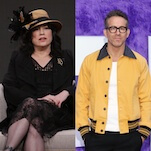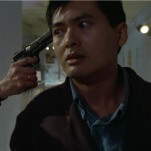Much media hullabaloo has been aimed at the opening line of Alice Sebold's second novel, The Almost Moon: "When all is said and done, killing my mother came easily." But while it's been criticized as too abrupt, gimmicky, or calculated, its real problem is that it sets up an unmatchable standard. Virtually nothing in the rest of the book is as immediate or as forceful.
Sebold also started her debut novel, the 2002 mega-bestseller The Lovely Bones, with a killing and an arresting opening, introducing her 14-year-old protagonist from heaven, after her rape and murder. The book continues in lyrical terms as the narrator watches her friends, family, and killer go on with their lives; ultimately, Sebold found beauty in a grotesque situation. Her follow-up sees the world differently, from a clunky, baffling earthbound perspective instead of a comforting afterlife. Where Lovely Bones' murderee found perspective, Moon's murderer only finds confusion and questions. The book's primary problem is, she can't answer most of them.
Why does 49-year-old narrator Helen Knightly kill her mentally ill, cancer-riddled, aggressively incontinent mother? After the killing, Sebold flashes back to reveal a lifetime of misery between them, as young Helen is mocked and even physically assaulted because of her mother's mental issues. As a teenager, Helen imagines killing and dismembering her mother; as an adult, she dutifully provides her pedicures and enemas. And yet she never seems to draw the straight line between a lifetime of repression and sacrifice, and the instinct that leads her to end her mother's frustrating, troublesome, painful life.
It seems appropriate that Almost Moon dispenses with Lovely Bones' poetry in favor of blunt, ugly prose and analysis, but that analysis never dips particularly deep; Helen's behavior keeps getting vaguer and more irrational, as she stuffs her mother in the freezer and runs off to seduce her best friend's son, but when her ex-husband asks what's going through her head, she has no idea. Which makes Moon endlessly frustrating. It's all but impossible to understand a character who doesn't understand herself, or to empathize with such an empty, unfocused cipher. There's a certain tension in wondering what the hell she might do next, but for the most part, the book drifts from event to event without solid connections: between the actor and her actions, between the characters, between the past and present, or between the reader and the people on the page.








































